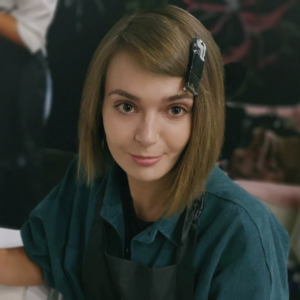"That's what 'ran away and was never seen again' means in these parts. It means 'eaten.'"
"Um and what about 'happily ever after'?" asked David, a little uncertainly. "What does that mean?"
"Eaten quickly".
— John Connolly, The Book of Lost Things
Tokyo of the early twenty-first century surfaced in their conversation rather unexpectedly. Makishima was lounging on the couch, rereading Moby-Dick. L lay sprawled on the floor beside him, legs crossed, absentmindedly gnawing on something while lost in thought, as usual. And then, out of nowhere, he said:
"I wonder… if we put your page into the Death Note or my page into your Psycho-Pass…"
Had it been anyone else, Makishima might have thought it was some sort of lewd euphemism. But coming from L, the thought was undoubtedly as pure as a child's tear. (Their little adventure in the vampire love-burger hadn’t changed much in their dynamic; neither of them seemed burdened by any awkwardness. L, for his part, had no concept that there was anything to be embarrassed about, and Makishima — who firmly believed sex was an overrated subject to begin with — had no intention of enlightening him.)
"…who would we become?" L finished. "Maybe in Psycho-Pass, I’d be Kogami Shinya?"
"You’re nothing like Kogami," Makishima said honestly. "If anything, you’re the anti-Kogami. And I wouldn’t make much of a Kira, either."
"I still want to see your world with my own eyes." L rolled onto his side and studied Makishima’s face. "Let’s go there."
Makishima sighed in exasperation.
"Listen, this isn’t like crashing at Count von Weisshaar’s castle. Do you have any idea what your Crime Coefficient would be?"
Actually… that was a good question. L had already demonstrated a level of moral flexibility that would make the Spanish Inquisition proud. Sure, he always believed he was acting in the name of justice, but then again, most serial killers would say the same. And if he were ever put in the position of an Enforcer, he’d comply with orders right up until they clashed with his own bizarre moral compass, which, let’s be honest… would probably be the very first assignment.
"The second you step into Psycho-Pass, you’d be turned into a pile of bloody chunks," Makishima concluded.
L didn’t argue, just sighed.
"Shame. I really wanted to see what Earth looks like in the future."
And that was when Makishima, without thinking, said:
"Better let’s go somewhere like your world. I want to see how you lived."
By now, they should have known better. Every one of their ideas, no matter how reasonable at first glance, always ended in disaster.
This one was no exception.
From Makishima’s perspective, Tokyo in 2015 wasn’t all that different from the Tokyo he knew from Psycho-Pass. A forest of identical skyscrapers, millions of tiny lights merging into an endless void of loneliness and despair.
That was how the world looked from three hundred and fifty meters up.
For the past three months, he had been living on the Tembo Deck — the lower of the two observation levels of the Tokyo Skytree. There was a second deck, a hundred meters higher, but up there, there was nothing but lights and an unbearable sense of existential horror. Here, at least, there were cafés and shops.
At the start of the outbreak, he had wedged the only functioning elevator at the top. Whatever horrors unfolded on the lower floors, neither humans nor zombies were willing to take on the grueling climb up all those flights of stairs.
Later, when there were hardly any uninfected people left in the city, he removed the stopper so he could occasionally descend. Just in case, he camouflaged the elevator doors with a folding screen depicting old Edo, a relic from the tower’s former decor. Not that it really mattered — infected often wandered into the lower levels of Skytree, but their minds were too far gone to even register the existence of an elevator.
It had all started in the most predictable way for stories like this: a weapons research lab owned by a massive corporation; a virus engineered to turn primates hyper-aggressive, spreading faster than Ebola; a clumsy lab technician who didn’t secure a cage properly; a couple of escaped monkeys biting a few employees; and those employees… well, long story short, within a month, nearly all of Tokyo was gone. The ones left weren’t literally undead, but they sure looked the part — and they had the same insatiable craving for flesh.
Makishima survived for two reasons. One: unlike most of his coworkers at the lab, he actually knew how to use a gun — and had no hesitation about it. The lab had been located not far from Skytree, in the quiet, old-fashioned district of Asakusa, and as soon as the outbreak began and the city spiraled into panic, he saw exactly where things were headed. There was no better fortress than the tower.
But the real reason, of course, was simpler: he was the protagonist of this little narrative. And what a boring story it would have been if he’d been infected and died right out of the gate.
He had a clear goal. He wasn’t some brilliant scientist — just a regular lab tech (tragically!) — so he couldn’t engineer an anti-zombie vaccine himself. But the lab’s central computer could — if only he could find someone immune to the virus.
As for who that miracle person was supposed to be… Makishima had a pretty good guess.
So he spent his days and nights with binoculars pressed against the glass of the Tembo Deck, scanning the streets for a single living person among the dead.
The wait turned out to be agonizingly long. At first, he had expected that — Tokyo was a thirty-million-strong anthill, and picking out one person in that chaos was next to impossible. Besides, things were still too dangerous down below; even a hazmat suit and an arsenal wouldn’t have saved him.
But after the worst of the carnage settled, he started making excursions into the abandoned city — a wasteland of mindless predators wandering aimlessly, frozen traffic, looted apartments, piles of corpses, and scattered, utterly useless biohazard signs.
From Skytree, he could spot signs of human presence — a car suddenly rolling down the street, a flickering light in a window. Many lights were still on by sheer inertia, but turning them on and off meant someone was alive. Whenever he saw something like that, he went to investigate. But every time, his search ended in nothing.
He had no interest in joining survivor groups. They were useless at best, outright dangerous at worst. Once he confirmed that his person wasn’t among them, he always returned to his tour d’ivoire.
And slowly, those signs of life faded away.
The whole thing felt like some cruel parody of his loneliness in Psycho-Pass. "History repeats itself, first as a tragedy, second as a farce." But when you’re not an audience member but the lead in the performance, the farce stops being particularly funny.
He was willing to wait forever if he had absolute confidence in his plan. But doubt started creeping in. What if I got it wrong? What if no such person exists? What if this is a story with no happy ending?
And really, happy endings were nothing more than cheap indulgences for the masses — little to do with real life.
That thought made him… deeply, deeply uneasy.
A few times, the idea of shooting himself — or just taking a handful of sleeping pills — crossed his mind. Not out of cowardice, just logic. He wouldn’t really die; he’d simply wake up again in their Library of Babel.
But something stopped him every time.
L was still here, somewhere, wandering the same ruined city. Wandering alone, without even the faintest hope — because he didn’t know about the lab, or the antivirus, or that the world might still be saved.
One evening, as Makishima once again gazed out over the dead city sprawling beneath his feet — without much hope, just out of habit — he noticed strange, flickering lights near Tokyo Bay.
Beyond Rainbow Bridge, next to the massive Ferris wheel glowing in the dark, he spotted through his binoculars a building of bizarre architecture — an intricate lattice with a sphere trapped inside, as if a ball had been caught in a cage. And it was inside that sphere that the light was flashing.
Three short bursts, three long, three short again — there wasn’t a soul alive who wouldn’t recognize that signal. SOS.
His first instinct was to throw on his hazmat suit, grab his weapons, fuel up a car — any car, they were all his for the taking now — and race toward the beacon of hope. But he forced himself to wait. A nighttime excursion into a city crawling with the infected could end badly, even in a vehicle.
That night was the longest of his life.
The cage-and-ball structure stood on Odaiba, a small artificial island in the bay. At dawn, he set out immediately. But just as he was about to reach his destination, he ran into an unexpected problem — the entrance to Rainbow Bridge, the only direct connection between the Shibaura shipyards and the island, had been blown to hell. And whoever had done it had been thorough — not even on foot could he make it across the wreckage.
So Makishima found a nearby supermarket, grabbed a couple of rockets — fireworks, since signal flares weren’t an option — and started launching them every few minutes from a spot near the shore. A desperate move. He knew full well the rockets would attract the infected long before they reached whoever had sent the distress signal. And sure enough, the zombies wasted no time.
They swarmed his car.
Makishima let his foot rest lightly on the gas, and the vehicle began rolling backward. The zombies, slow-witted as they were, could still tell there was a warm, delicious human inside, and they weren’t giving up.
He kept his speed low. The zombies kept up — fast, for zombies. A few of the more agile ones managed to scramble onto the roof. That was his cue to end this little game. He slammed the gas.
The added weight sent the car skidding. It spun out of control, slammed into a guardrail. By the time he wrestled the wheel back, the infected had already piled onto the vehicle like flies, smashing at the windows. One hand on the wheel, the other reaching for his gun — twelve rounds, twenty zombies, but he had another gun, if only he could reach it—
“Duck, please.”
A familiar voice.
Makishima obeyed without hesitation.
The shotgun blast nearly deafened him. Another shot. And another.
In the middle of the road stood L. No hazmat suit. No protective gear. And Makishima didn’t even need to see the bandaged leg, the unmistakable imprint of teeth above the knee — he already knew.
He had found the special person he needed.
For a moment, they just stared at each other in silence, drinking the sight in. Then L, in his usual judgmental tone, said:
“You look awful.”
Makishima laughed — out of sheer relief. Not because it was funny, but because maybe for the first time in his life, he was happy.
Truly, unbelievably happy.











Comments (0)
See all